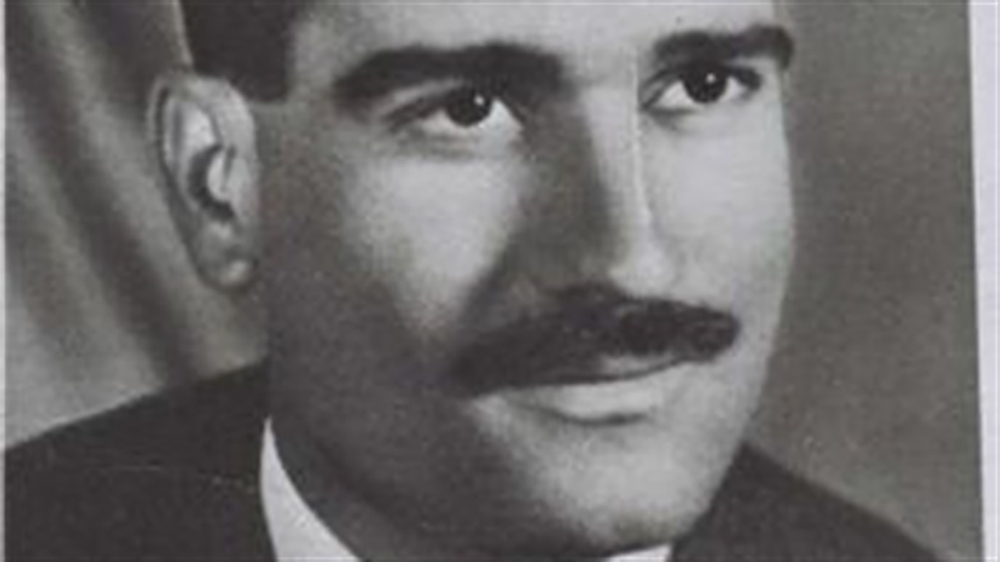|
Getting your Trinity Audio player ready...
|
Netanyahu Honors Eli Cohen’s Legacy, Vows Continued Efforts to Bring His Remains Home
By: Fern Sidman
In a poignant ceremony held at the Prime Minister’s Office in Jerusalem on Thursday, Israeli Prime Minister Benjamin Netanyahu paid tribute to one of the nation’s most legendary intelligence operatives—Eli Cohen—marking the centennial of his birth. Nadia Cohen, the widow of the iconic Mossad agent, was a guest of honor at the commemoration, where Netanyahu presented her with a framed letter of appreciation recognizing Eli Cohen’s extraordinary service and ultimate sacrifice for the State of Israel.
According to a report in The Jerusalem Post, the Prime Minister noted that Cohen’s story remains a symbol of bravery, patriotism, and profound national significance. At Nadia’s request, the letter will be displayed at the Eli Cohen Museum in Herzliya, serving as a lasting testament to a man whose work helped shape Israel’s security history.
Prime Minister Benjamin Netanyahu hosted Nadia Cohen, widow of murdered Mossad agent Eli Cohen, at the Prime Minister’s Office on Thursday.https://t.co/BlRy48IyGz
— The Jerusalem Post (@Jerusalem_Post) March 27, 2025
During the ceremony, Netanyahu reaffirmed Israel’s unwavering commitment to securing the return of Eli Cohen’s remains from Syria—an effort that has spanned nearly six decades. “The mission continues,” Netanyahu declared, “and we will persist until the mission is complete.” The Jerusalem Post reported that he drew a direct parallel between the ongoing efforts to retrieve Cohen’s remains and Israel’s broader campaign to bring back all hostages held by enemy forces, both the living and the fallen. This statement was especially poignant given current hostage-related challenges facing Israel.
The event was attended by several senior officials, including Sara Netanyahu, Brigadier General (Res.) Gal Hirsch, who serves as the national Coordinator for the Hostages and the Missing, Varda Pomerantz from the Missing Persons Directorate, and a representative from the Mossad. Their presence underscored the gravity and national importance that Israel continues to attach to the memory and mission of Eli Cohen.
Eli Cohen is widely regarded as one of the most effective and daring spies in the history of the Mossad, Israel’s national intelligence agency. As detailed in The Jerusalem Post report, Cohen’s operations in the early 1960s remain a benchmark for intelligence work. Operating under the alias “Kamel Amin Thabet,” he successfully infiltrated the upper echelons of the Syrian Ba’ath Party and established himself as a trusted figure within Syria’s political and military circles.
Cohen’s ability to gain intimate access to Syrian leadership was so complete that he often hosted elaborate gatherings at his home in Damascus, where he would feign drunkenness to elicit sensitive information from high-ranking officials. Through these carefully cultivated relationships, Cohen transmitted critical intelligence back to Israel, most notably about Syrian fortifications in the Golan Heights—information that proved vital to the Israeli Defense Forces during the 1967 Six Day War.
Originally born in Egypt, Eli Cohen had a long history of Zionist activism. As The Jerusalem Post report recounted, even before his formal recruitment into Mossad, he was reportedly involved in clandestine efforts to smuggle Egyptian Jews to Israel and may have participated in the infamous Lavon Affair, a failed Israeli covert operation in Egypt.
After building his cover identity in Argentina, Cohen moved to Syria in 1962 and embarked on what would become a legendary and ultimately tragic espionage career. His mission came to a sudden end in January 1965, when Syrian counterintelligence intercepted a transmission he was sending to Israel. He was arrested, interrogated, and, despite international appeals for clemency, publicly executed in Damascus on May 18, 1965.
To this day, Eli Cohen’s remains have not been returned to Israel, despite years of diplomatic and intelligence-driven attempts. As reported by The Jerusalem Post, the Assad regime and its predecessors have repeatedly rebuffed Israeli overtures, with Syrian officials at times claiming that Cohen’s body was reburied multiple times to prevent its recovery.
Yet there have been small, symbolic victories. In 2018, the Mossad succeeded in retrieving Cohen’s wristwatch from Syria—an emotionally charged artifact that now resides in the Mossad headquarters. The recovery was seen as both a gesture of respect and a signal that Israel’s intelligence apparatus remains committed to honoring its operatives, no matter how long it takes.
With the Assad regime weakened by years of civil war and foreign intervention, some observers have speculated—according to The Jerusalem Post—that the conditions may be ripening for another attempt to locate and retrieve Cohen’s remains. However, the mission remains as elusive as it is critical to Israeli national memory.
Thursday’s ceremony at the Prime Minister’s Office was more than a commemoration—it was a reaffirmation of national values. Eli Cohen’s story embodies the sacrifices made in the service of Israel’s survival and security. By honoring his legacy, Netanyahu and the Israeli leadership are sending a powerful message: that those who risk their lives for the country will never be forgotten, and their missions, even in death, remain sacred to the nation.
The memory of Eli Cohen endures as both a beacon of Israeli heroism and a reminder of the enduring costs of war and espionage. The centennial of his birth is not only a tribute to the past but a call to continue the fight for justice, remembrance, and national resilience.





We’ll never forget Eli Cohen.